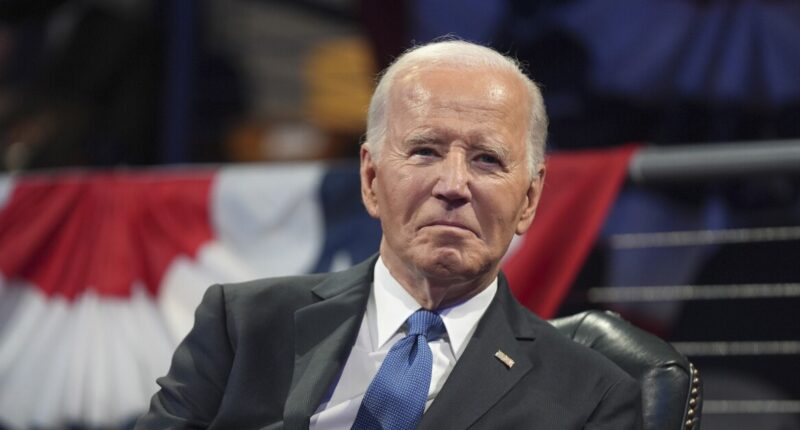In an announcement on Friday, President Joe Biden revealed his decision to commute the sentences of nearly 2,500 individuals who were convicted of nonviolent drug offenses. This move comes as part of a series of clemency actions taken by Biden to overturn what he views as excessively harsh prison terms.
Biden’s latest act of clemency sets a new record for the highest number of individual pardons and commutations granted by a sitting president. He highlighted his intention to address disparities in sentencing by focusing on cases where individuals were subjected to extended prison time under outdated laws and policies.
Explaining his rationale behind the decision, Biden emphasized the need to rectify the effects of past sentencing practices that led to prolonged incarceration for individuals convicted on drug-related charges. By granting clemency, he aims to correct historical injustices and offer eligible individuals the chance to reintegrate into society after serving lengthy prison sentences.
The White House did not immediately release the names of those receiving commutations.
Still, Biden said more could yet be coming, promising to use the time before President-elect Donald Trump is inaugurated Monday to “continue to review additional commutations and pardons.”
Friday’s action follows Biden’s commutations last month of the sentences of roughly 1,500 people who were released from prison and placed on home confinement during the coronavirus pandemic, as well as the pardoning of 39 Americans convicted of nonviolent crimes. That was the largest single-day act of clemency in modern history.
All of this comes as Biden continues to weigh whether to issue sweeping pardons for officials and allies who the White House fears could be unjustly targeted by Trump’s administration. Though presidential pardoning powers are absolute, such a preemptive move would be a novel and risky use of the president’s extraordinary constitutional power.
Last month, Biden also commuted the sentences of 37 of the 40 people on federal death row, converting their punishments to life imprisonment just weeks before Trump, an outspoken proponent of expanding capital punishment, takes office. Trump has vowed to roll back that order after his term begins.
Biden also recently pardoned his son Hunter, not just for his convictions on federal gun and tax violations but for any potential federal offense committed over an 11-year period, as the president feared Trump allies would seek to prosecute his son for other offenses.
If history is any guide, meanwhile, Biden also is likely to issue more targeted pardons to help allies before leaving the White House, as presidents typically do in some of their final actions.
Just before midnight on the final night of his first term, Trump, a Republican, signed a flurry of pardons and commutations for more than 140 people, including his former chief strategist, Steve Bannon, rappers Lil Wayne and Kodak Black and ex-members of Congress.
Trump’s final act as president in his first term was to announce a pardon for Al Pirro, ex-husband of Fox News Channel host Jeanine Pirro, one of his staunchest defenders. Al Pirro was convicted of conspiracy and tax evasion charges and sentenced to more than two years in prison in 2000.
Denver 7+ Colorado News Latest Headlines | January 17, 6am

















